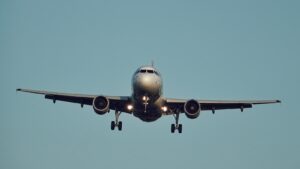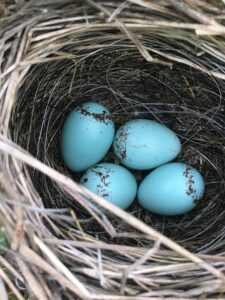Climate crisis is causing birds to lay eggs earlier
A new study has revealed an alarming trend among avian species, with nests being made and eggs laid almost one month earlier than historic patterns.
Research published in the Journal of Animal Ecology has pointed to a new product of climate change. By comparing current observations with archived records and centuries-old eggs preserved and stored in collections, experts believe around one-third of birds in Chicago are laying their eggs around 25 days earlier than expected.
‘Egg collections are such a fascinating tool for us to learn about bird ecology over time,’ said John Bates, curator of birds at the Field Museum and the study’s lead author. ‘I love the fact that this paper combines these older and modern datasets to look at these trends over about 120 years and help answer really critical questions about how climate change is affecting birds.
‘Once I got to know our egg collection, I got to thinking about how valuable that collection’s data are, and how those data aren’t replicated in modern collections,’ he continued. The museum’s egg collection contains thousands of egg shells which have had their contents emptied, with information archived including the exact date they were collected and prepared for storage, with the majority falling into two large data sets: the first spanning 1880 to 1920, the second from 1990 to 2015.
Using all the information available on 72 species of birds in the Chicagoland region, it was found that one-third had been laying eggs earlier and earlier over time. The reason for this also formed a significant part of the research project.
Rising temperatures were believed to be the catalyst, but there were gaps in historic information. As such, the work looked to the level of carbon in the atmosphere – a key contributor to rising temperatures – to understand the change in bird egg patterns better. As a result, they concluded that increasing emissions, and their impact on seasonal temperatures, is driving this change in behaviour.
In related news, a team at the University of Tennessee is working on an overhaul of conservation planning processes based on financial asset management.
Image credit: Hannah Schulte
















